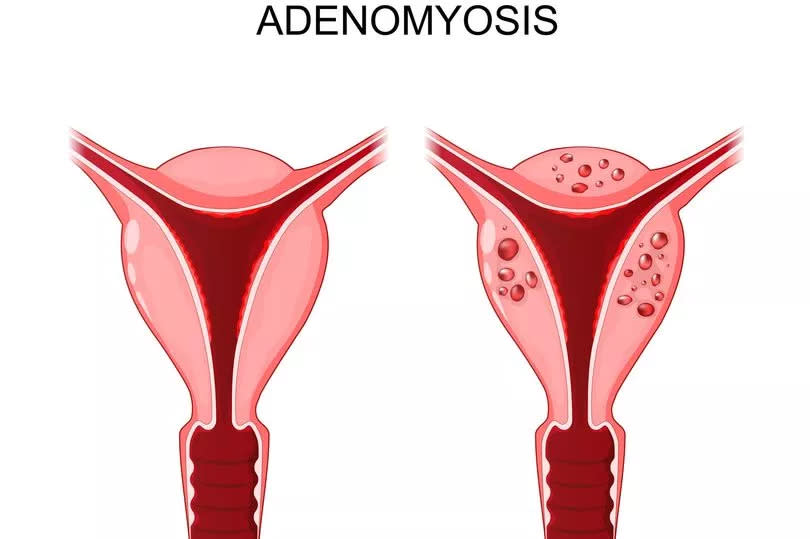Little-know condition that causes stomach pain as people warned of 'no symptoms'

People are being urged to know about a little-know condition which causes extreme pain in light of Adenomyosis Awareness Month.
Adenomyosis is a condition where the lining of the womb - or the uterus - starts growing into the muscle in its wall, called the myometrium.
According to the NHS, there are some key signs to look out for, however some may experience no symptoms at all.
What are the symptoms of adenomyosis?

Some symptoms of adenomyosis that affect your periods include:
Painful periods
Heavy bleeding during your period
Other symptoms can happen any time in your menstrual cycle such as:
Pelvic pain (pain in the lower part of your tummy)
Bloating, heaviness or fullness in your tummy (abdomen)
Pain during sex
Although it sounds similar and many get confused between the two, it is not the same as endometriosis. This is a different condition where tissue similar to the lining of the womb grows in other places, such as the ovaries or fallopian tubes.
Adenomyosis is more commonly diagnosed in women over the age of 30, say the NHS, however it can affect anyone who has periods.
When should I see a GP?
The NHS state you should arrange a doctors appointment if you experience the following:
Your periods become more painful, heavier or irregular
You have pain during sex
Heavy periods are affecting your life or you've had them for some time
You've been feeling bloated for a while (about three weeks)
You bleed between periods or after sex
The NHS warn that if your pelvic pain or period pain is severe or worse than usual, and painkillers have not helped, you need to ask for an urgent GP appointment or get help from NHS 111.
How do I get diagnosed with adenomyosis?
NHS Inform state that doctors will perform a pelvic examination by looking at your vulva, vagina and cervix (the opening between the vagina and the womb) to see if they can see anything that would cause your symptoms.
Depending on if they find anything or not, you might be referred to a specialist who will carry out more tests. They explain: "This might include an ultrasound or an MRI, which will allow a doctor to look at your womb. This can also help rule out any other health conditions."
Is there any treatments for adenomyosis?
It's not clear what causes adenomyosis and you can't catch it, however if you’re diagnosed with adenomyosis, there are treatments that can help ease your symptoms.
Treatments include:
The IUS (intrauterine system, also called Mirena or hormonal coil), which thins the womb lining, making your periods lighter and less painful
Other types of hormonal contraception if you cannot or do not want to have an IUS, such as the progestogen-only pill, the combined pill or the contraceptive patch
Medicines such as tranexamic acid or NSAIDs
The NHS caution: "If these treatments do not work, you may need surgery. This could be a hysterectomy, or surgery to remove the lining of your womb (endometrial ablation)."
Don't miss the latest news from around Scotland and beyond. Sign up to our daily newsletter.

 Yahoo News
Yahoo News 
